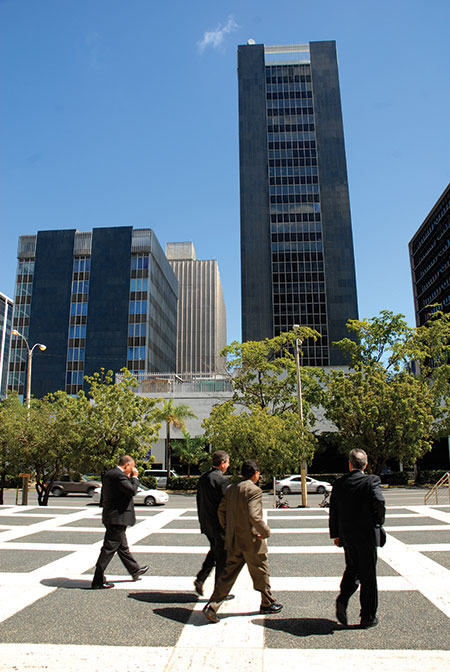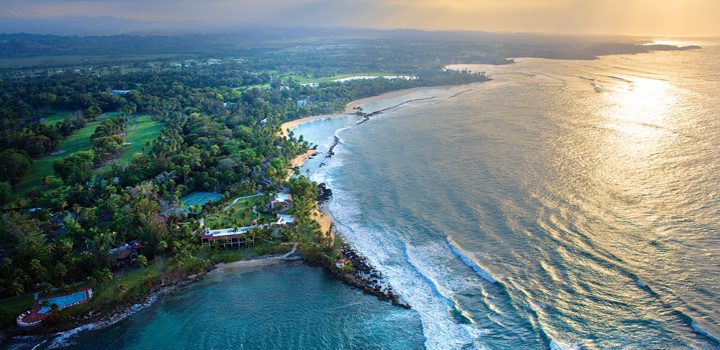
What do billionaire hedge fund managers, A-list actors, and Sotheby’s have in common? They’re all taking advantage of a pair of new laws designed to give investors a safe haven for their income, while boosting Puerto Rico’s economic development.
New laws gives investors a safe haven for their income.
Dozens of high net worth investors have flocked to Puerto Rico in recent months to take advantage of the incentives created in 2012 by Laws 20 and 22.
In the island’s financial district, Hato Rey, law firms are receiving calls from interested investors from around the world. “Clients can’t believe the benefits. There is a tremendous amount of interest,” said one corporate attorney.
Law 22 also known as the “Individual Investors Incentives Act” offers residents of Puerto Rico 100-percent tax exemption on income taxes from all dividends; on income taxes from all interest; and income taxes from all short-term and long-term capital gains accrued after the individual becomes a resident.
Dividends and interest income earned by Puerto Rico residents on U.S. securities are generally taxed by the federal government, but capital gains taxes on their sales are based on residence.
That makes Puerto Rico the perfect place to relocate if you are a successful U.S. business person wanting to sell a business or investment portfolio, since you will essentially avoid taxation on the profits.
To take advantage of this break from U.S. federal income taxes, investors must move here and become a part of the local community. They have to be here at least 183 days a year and pass “closer connection” tests to prove they are bona fide members of the Puerto Rico community. These include that an investor’s spouse must live here, and minor children go to school on the island.
Although part of the U.S., Puerto Rico has fiscal autonomy and operates in a separate tax jurisdiction. The unique interplay between island and federal tax laws create the conditions that create this investment paradise.
For example, U.S. residents don’t have to renounce U.S. citizenship when taking advantage of these Law 22 tax benefits offered to those who establish residency in Puerto Rico, which exempts income from passive investments. That means they are not obligated to pay the 23.8% existing tax on unrealized capital gains when moving to the island that they would have to pay if moving to a foreign country.
What’s the cost of paradise? You’ll save almost $240,000 on every $1 million you earn from your investment, by forgoing the 23.8% tax rate on unrealized capital gains, whether from the sale of stock, businesses or real estate.
Foreign residents and investors who establish residency in Puerto Rico will also benefit from generous tax treatment, which includes shielding them from the imposition of federal taxes while offering them U.S. visas in exchange for investments.
Legendary hedge fund manager John Paulson has opted to remain a New Yorker, but invested in the Bahia Beach resort in Rio Grande after analyzing the incentives, and said he’s considering more investments.
The companion Law 20 offers a rock bottom 4% tax rate if companies bring their professional services to the island, and export those services. Several have opened branches of their businesses on the island in the areas of technology, investment, law, and accounting in order to take advantage of the Law 20 incentives.
Best of all, each investor that applies under the program gets a rock-solid tax decree guaranteeing the tax exemption for 20 years. That’s about as close a guarantee of sunny, fantastic weather on your tropical sojourn as you can get.
One of the Law 20 investors is Nicholas Prouty, a hedge fund investor from Connecticut, who is investing close to $200 million in the real estate project in Puerto Rico and has become a proponent of a public park in Santurce and a public drive to get Puerto Rico’s best and brightest to return home.
There’s now a Sotheby’s real estate branch in Condado catering to this new and expanding class of residents, which also benefit from top notch healthcare, laser-fast travel and telecommunications connections and an infrastructure of luxury that includes yacht clubs and 5-star vacation retreats.
Puerto Rico’s laws resonate with international investors too, as they can benefit from the tax exemption on passive investments that Puerto Rico offers.
These investors can also take advantage of the U.S. government EB-5 (employment-based, fifth-preference category) Immigrant Investor Pilot Program in Puerto Rico, which grants U.S. visas to foreigners who make $500,000 investments that create jobs.
At least three EB-5 regional centers, which bring some preferential treatment including greater flexibility in complying with federal requirements, are being established in Puerto Rico.
One of them, the Iconic Caribbean Regional Center, is funding the Hard Rock Cafe’s re-launch in San Juan this year and expects to raise $50 million annually over the next four years from foreign investors for other projects
Puerto Rico’s exemption from federal taxes gives it an advantage over other U.S. destinations in seeking to attract EB-5 investors. Puerto Rico regional centers are focusing efforts on South America, luring millionaire investors from Colombia to Chile.
With the investment incentives, Puerto Rico is finally living up to its name becoming a low-tax paradise.
